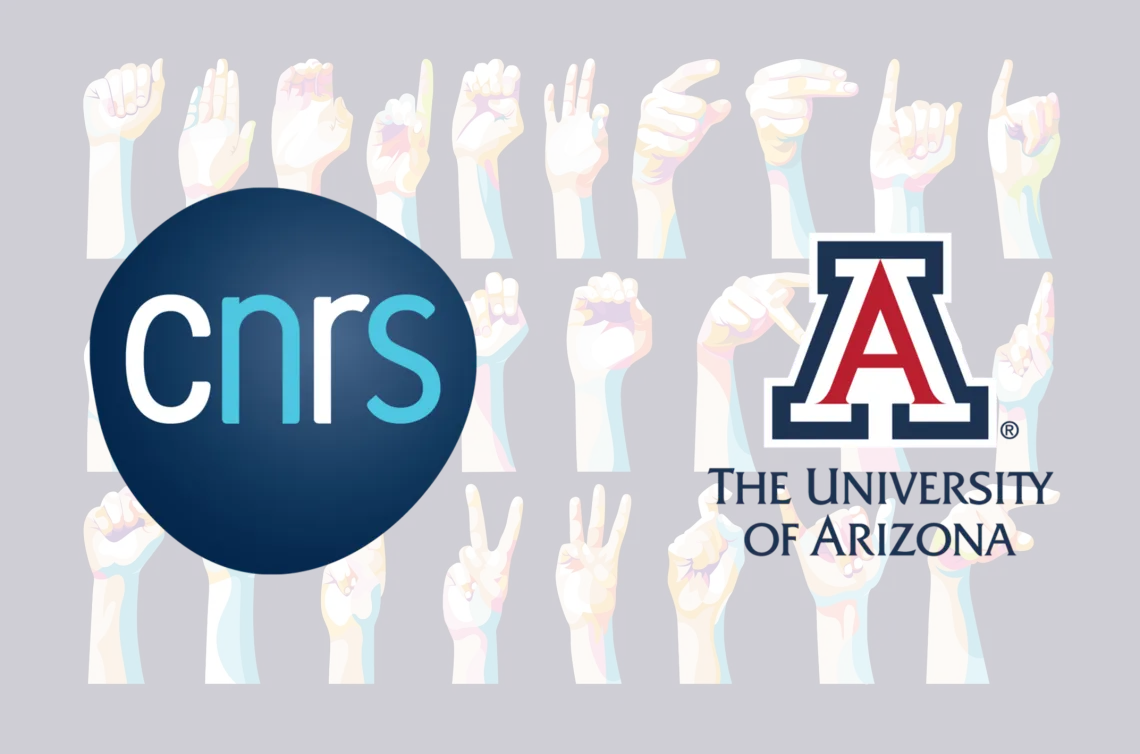CNRS and the University of Arizona select the 2023 Awardees of their Joint PhD Program

The University of Arizona and the French National Centre for Scientific Research (CNRS) are long-time partners searching for answers to some of the world's most pressing challenges. In 2021, the two institutions co-founded the France-Arizona Institute for Global Grand Challenges. Located at the U of A, the institute speaks to their continued commitment to transnational collaboration on groundbreaking research.
The France-Arizona Institute promotes collaboration through its Graduate Research Fellowship & International Mobility Award. Each year, the institute funds research projects in which two teams—one from CNRS and the other from the University of Arizona—work together for three years to address a grand challenge.
The most recent call for proposals emphasized projects related to environmental resilience, climate change and health. After reviewing many excellent submissions, the FA Institute selected five recipients:

“uSing argument foR Fact-checkING (SURFING)” aims to employ new technology to tackle the increasing difficulty of distinguishing between factual and misleading information. Mihai Surdeanu and Eduardo Blanco, associate professors of computer science at the U of A, will work with Srdjan Vesic, a research scientist at CNRS, to develop robust and holistic fact-verification methodologies. Their work, affiliated with the College of Science, will mine arguments from the web and construct domain-agnostic fact graphs to indicate whether facts attack or support each other. With this knowledge, they will be able to assign a truthfulness value to a given argument.
“Beyond the mean: plant functional diversity and the maintenance of rare phenotypes in plant communities” will address the vulnerability of species and ecosystems to environmental changes. Brian Enquist, professor of ecology & evolutionary biology at the U of A, and Cyrille Violle, director of research at CNRS, will analyze data from pre-existing regional and global databases to figure out if species whose physiological features do not match local ecological optima can persist or if they will go extinct more rapidly.
“Study of therapeutic effects of 2-photons controlled gene delivery with nanoparticles in uveal melanoma using organoids-on-chip model” will focus on developing technological innovations to improve human health. Frederic Zenhausern, director of the Center for Applied Nanobioscience and Medicine at the U of A, and Frédérique Cunin, director of research at CNRS, will address the need for therapies for uveal melanoma. The most common primary intraocular malignancy in adults, this type of melanoma often results in blindness or death. The researchers will investigate focused gene therapy using an organoids-on-chip model, a promising new technology in the field of oncology.
“Characterizing LARP6C function in tomato pollen and using it to generate heat tolerant tomato lines” comes from the College of Agriculture and Life Sciences. The project is led by Ravishankar Palanivelu, associate professor in the School of Plant Sciences, and CNRS researchers Cécile Bousquet-Antonelli and Rémy Merret. The team will investigate the tomato plant's reaction to heat and, based on their findings, will work to develop heat-tolerant lines of tomatoes that can thrive even as the planet warms.
Finally, “Meaning, gesture, and sign in Mesoamerica,” affiliated with the College of Social and Behavioral Sciences, will look into spoken and sign languages used in Mesoamerica. Robert Henderson, associate professor of linguistics, in collaboration with Jeremy Kuhn and Carlo Geraci, CNRS researchers from the Jean Nicod Institute, postulate that “certain languages are particularly vulnerable to climate change and associated trends like migration and globalization.” By exploring spoken and sign languages employed in Mesoamerica and comparing them to European sign languages, the project will deepen understanding of the semantics of pluractionality and distributivity.
Each team will receive 5,000 euros to support the CNRS team's mobility costs for visits to the U of A partner team, which will receive 5,000 dollars toward the same end. The France-Arizona Institute is excited about how these projects will shed light on previously underexplored topics and allow PhD candidates to collaborate in new ways.
CNRS article announcing funded projects in the frame of the Ph.D. joint programs
